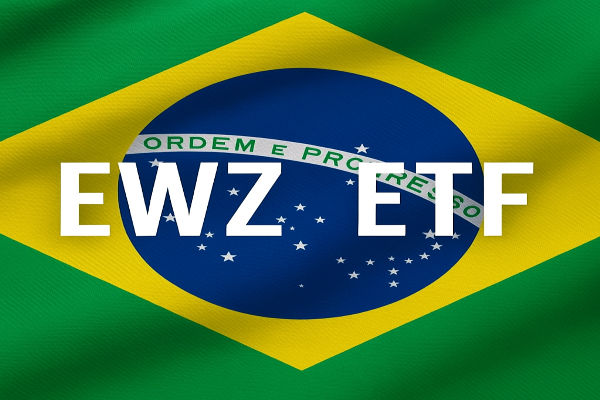Currency serves as a standard unit in which prices are marked and debts recorded, simplifying trade and accounting. According to perimeter economics, resources are allocated based on relative prices—how one product’s price compares to another’s. For instance, stores list prices in yuan, while a car dealer may quote $200,000 for a vehicle without needing to equate it to, say, the cost of 5,000 shirts

A denominated currency is the currency used to calculate and settle debts and liabilities. For example, purchasing goods in RMB is a straightforward form of currency denomination. In contractual agreements, both parties agree on a currency for valuation, which usually matches the currency of settlement unless otherwise specified.
In financial reporting, a denominated currency is used to represent and report all financial transactions. It serves as the standard for assets, liabilities, revenues, expenses, and profits, helping to maintain consistency in financial statements.
Under the Denomination Currency Principle in International Accounting Standards (IAS), entities select a primary denomination currency—typically their home or operational currency—for financial statements. This principle ensures clarity, allowing stakeholders to assess a company’s financial health accurately and make informed investment decisions.
In the forex market, there are generally two currencies involved: the base currency and the denominational (quote) currency, which indicates the value of the base currency.
Currency of denomination of international bonds
| QUOTE CURRENCY |
CHARACTERISTICS |
| National Currency |
Funding is primarily raised in the home market, with principal and interest paid in the home currency. |
| United States Dollar (USD) |
The U.S. dollar is the global reserve currency, attracting international investors and providing strong market liquidity. |
| Euro (EUR) |
Widely circulated in the European region, suitable for financing in the European market. |
| British Pound (GBP) |
Suitable for raising funds in the UK market, mainly for UK funding needs. |
| Other major currencies |
Other major international currencies are chosen according to market demand, attracting investors from different regions. |
Principles for Choosing a Denominational Currency in Forex
Selecting the right denominational currency in the foreign exchange market is essential for reducing risk and attracting the right investors, whether in international bonds or forex trading. Here are some foundational principles to guide this decision:
Local Currency for Reduced FX Risk: Most international bonds are denominated in the currency of the issuing country to minimize foreign exchange risk. For example, a Japanese company issuing bonds in yen can simplify principal and interest payments for local investors.
Appealing to International Investors: To attract a global audience, issuers may choose widely used currencies, like the U.S. dollar or euro, over their national currency. However, if the focus is on the home market, a national currency denomination may be better suited.
Market Liquidity: Liquidity affects transaction costs and flexibility. Highly liquid currency markets like the U.S. dollar or euro provide smoother trading and lower costs, making them popular choices for international bonds and forex transactions.
Exchange Rate Risk Management: Choosing a foreign currency introduces exchange rate risk, but this can be managed through tools like forex swaps or hedging instruments. Balancing foreign currency exposure is critical to minimizing unexpected losses.
Portfolio Diversification: For diversified portfolios, using multiple currencies can spread risk across markets. Different denominational choices provide flexibility and resilience under changing market conditions.
Trading Hours: Forex markets operate on varying schedules. Selecting a currency with trading hours that align with your own can increase efficiency and allow for better market responsiveness.
Legal and Regulatory Compliance: Be aware of regulatory requirements in different markets. Some countries have restrictions on currency usage, so it's essential to comply with these when choosing your denominational currency.
Aligning with Business Objectives: The choice of currency should reflect the transaction’s goals. Funds required in a specific currency should ideally be denominated in that currency. For transactions aiming to attract international investors, U.S. dollar or euro denominations are often favored.
By carefully evaluating these factors, investors and issuers can make informed choices on denominational currencies, optimizing for reduced risk, market accessibility, and compliance.
Four denominated currency
| CURRENCY |
OFFICIAL CURRENCY |
SCOPE OF USE |
| United States Dollar (USD) |
United States |
A major currency in global international trade and financial transactions. |
| Euro (EUR) |
Eurozone countries |
Important currency in the foreign exchange market between global and European countries. |
| Japanese Yen (JPY) |
Japan |
Widely used in the global and Asian foreign exchange markets. |
| British Pound (GBP) |
United Kingdom |
Important in UK and US foreign exchange transactions. |
Denomination Currency: USD
If a company or entity chooses the United States dollar (USD) as its denominated currency, it will use USD to measure and report its financial position, performance, and transactions. Using the USD helps streamline financial statements and ensures consistency, especially since it’s the primary currency for global trade and finance. Due to its liquidity and global reserve currency status, the USD also supports easier fund-raising in international capital markets.
In financial transactions, USD often serves as the benchmark currency. For example, in forex markets, a EUR/USD exchange rate of 1.20 signifies that 1.20 USD is needed to purchase one euro. Here, USD functions as the standard for indicating value in the exchange.
Disclaimer: This material is for general information only and is not financial, investment, or other advice. No opinions presented here constitute recommendations by EBC or the author for specific investments, securities, transactions, or strategies.


























